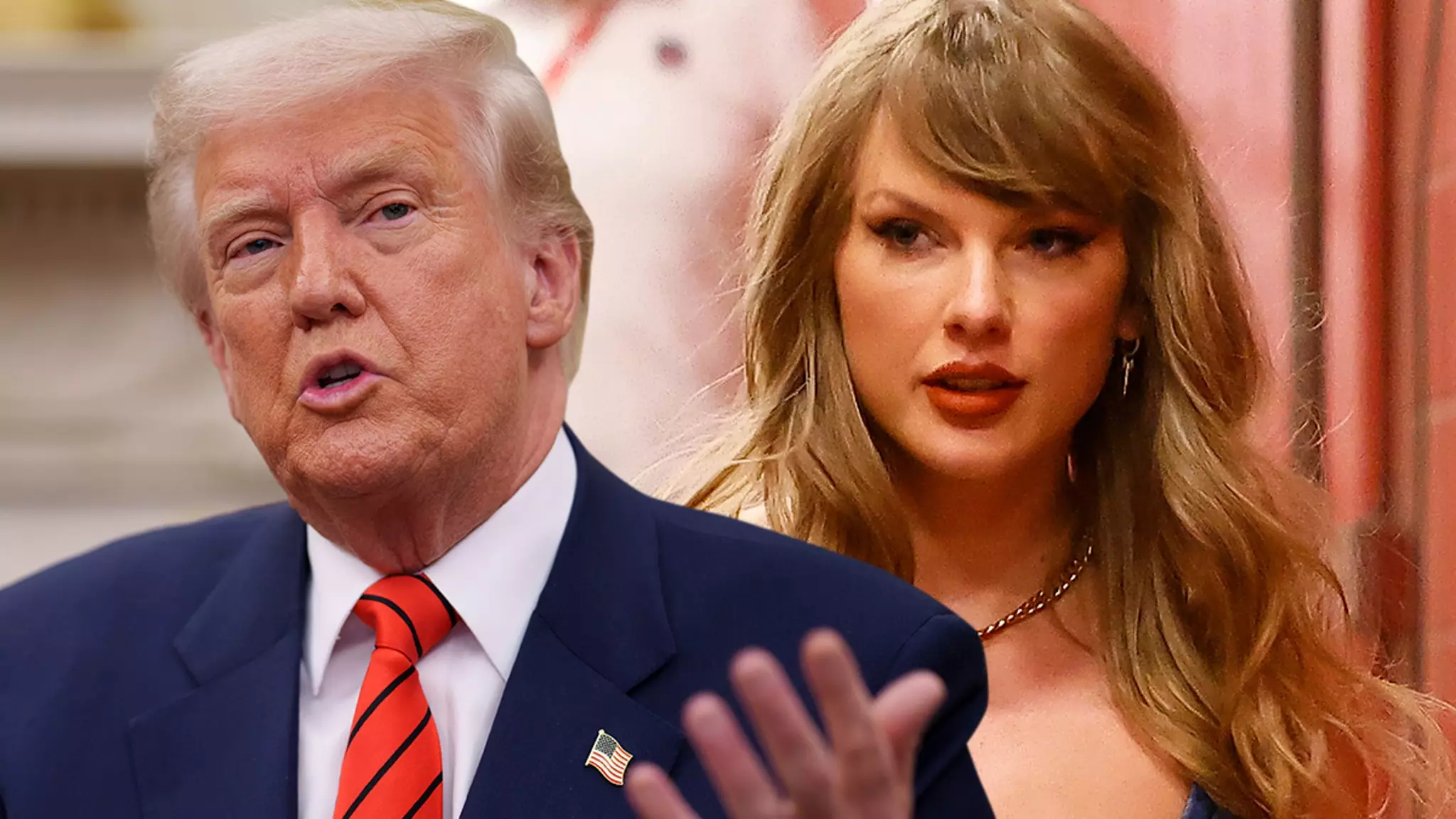In an era where the lines between politics and pop culture are increasingly blurred, former President Donald Trump has seemingly taken it upon himself to critique not just policies, but the physical attractiveness of public figures as well. Recently, he unleashed a bizarre diatribe on social media regarding renowned pop icon Taylor Swift. By claiming that her looks had diminished since he publicly expressed disdain for her, Trump reinforces a troubling narrative in which beauty becomes a battleground for political allegiance. Swift, who has openly criticized Trump and endorsed Kamala Harris, has inadvertently found herself at the intersection of personal vitriol and public spectacle.
Beauty: A Shifting Battlefield
Trump’s pronounced shift in opinion on Swift’s attractiveness—from praising her multiple times to vehemently stating he “hates her”—is not merely a matter of personal taste but also illuminates the precarious nature of celebrity visibility in the face of political pressures. This dramatic change serves to highlight how quickly the tides can turn in Hollywood’s perceived ‘hotness’ when political affiliations come into play. Are we to decipher that, in Trump’s worldview, attractiveness is a transactional asset contingent on support—or lack thereof—of his political agenda? Such a perspective reduces complex human beings to mere caricatures governed by the whims of political favor.
The Fallout from Celebrity Endorsements
For a public figure like Taylor Swift, stepping into the political arena may come with unintended consequences. The backlash from Trump’s supporters serves as a reminder that celebrity endorsements can polarize public opinion. When Swift endorsed Harris ahead of the 2024 elections, she undoubtedly knew she’d be stepping on political landmines; however, she perhaps underestimated how those in power would use personal attacks against her. Trump’s crude assessment of her beauty symbolizes a larger commentary on how women in the public sphere often face scrutiny that frustrates their professional achievements and personal identities.
Celebrity and the Political Sideshow
By framing his criticism of Swift through the lens of attractiveness, Trump trivializes a serious issue: the way public figures are evaluated. Often, women in the spotlight are subjected to a dual standard that equates their political opinions with their aesthetic value. It’s curious how Trump oscillates between praising and invalidating women’s accomplishments based on arbitrary characteristics like looks. Prudently, this situation invites a discourse on how society values women, particularly in domains where their influence transcends superficial attributes.
Ultimately, Trump’s comments are not just personal slights against Swift but serve as a poignant reminder of the complex interplay between culture and politics. The ramifications ripple far beyond their individual narratives, speaking volumes about how we as a society value—or undervalue—public figures based on their political loyalties and personal aesthetics.

